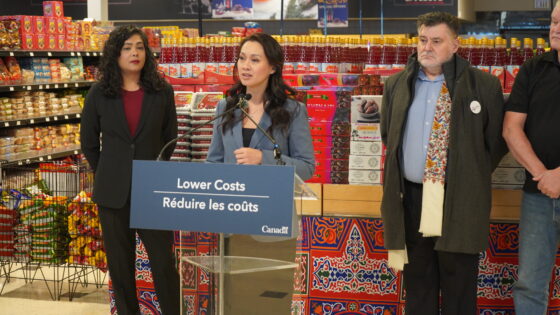on
BY SIMONE J. SMITH
What a year it has been!
2020 will go down in history as the year that the world blew up. This pandemic has caused upheaval in every facet of our lives, and to make it worse, many of us have become numb to the fact that we have lost our freedoms.
It all happened so quickly; one day we were out and about, and the next we couldn’t leave our homes. We were forced to stand in lines, separated from others. We were told we could not see our loved ones. Any major life event was cancelled. Thousands of businesses have disappeared. The world is a mess.
Throughout this craziness, we have had to depend on our media sources to provide us with updates on how to navigate what is happening. Many of us have willingly listened to what mainstream media has provided to us as answers. Then there are those of us who have taken time to dissect what we are being fed, researched information, and started asking questions. The moment anyone started doing this, they were labelled “Conspiracy Theorist.”
The term “Conspiracy theory” at one time struck fear and anxiety in the hearts of public figures, particularly journalists and academics. Since the 1960s, information that fit this term was considered off limits to inquiry or debate. There are different theories to how this word came to be, but it was the Central Intelligence Agency that played the greatest role in effectively weaponizing the term.
In 1976, The New York Times requested access to certain CIA documents, specifically ones labelled 1035-960 (The Warren Report). Here they discovered a detailed series of actions and techniques for “Countering and discrediting the claims of the conspiracy theorists, so as to inhibit the circulation of such claims in other countries.”
I completely understand why if someone wanted to keep people from finding out information that would damn them, they would find a way to discredit the information. This has been happening for years, and I don’t think that this is going to change.
As a paper, one thing that we pride ourselves on is our ability to provide actual FACTS to our community. Cambridge Dictionary describes facts as something that is known to have happened or to exist, especially something for which proof exists, or about which there is information.
Naturally, we as a team thought it was best to end the year by presenting to our community knowledge that they can bring into the New Year. I am honoured to present to you, 2020’s Top 9 Conspiracy Facts!
FACT 1: Lockdowns do not save lives
“The Canadian Charter of Rights and Freedoms specify that severe societal restrictions must be justified by the severity of the threat and the necessity of the interventions.” Joel Kettner (MD MSc FRCSC FRCPC)
I wrote this article, “Unnecessary Lockdowns – The Verdict is in; lockdowns do not save lives.” On November 26th, 2020. I thought it would be appropriate to start with this one, especially due to the fact that we are now entering another lockdown
We are nine months into this pandemic, and lockdowns did very little to save lives, and they were definitely not worth thousands of businesses closing and the severe economic costs. I mentioned that medical professionals reported that lockdowns slow the development of herd immunity, which helps a society move past the virus.
Experts were slowly coming out to speak against these rolling lockdowns that were happening globally. Lockdowns are now being viewed as one of the biggest medical and economic blunders of all time.
Sweden for example, acted on scientific advice to handle their COVID-19 spread. They advised their citizens to take sensible social distancing steps, but didn’t close their schools or small businesses. The Swedes are actually in a much better place than us in the Western world.
We have experienced a surge of people getting the flu before and there was not the need for a lockdown. Case in point, January 2018. Adam Carter wrote an article for CBC titled, “Hamilton hospitals over capacity as flu season surges.” A particularly bad flu season across Canada had caught some hospitals off guard. Some cities, like Calgary, were saying it was the worst flu season on record. It was a particularly severe strain of influenza A, H3N2, and an early run of influenza B that made the 2018 flu season particularly nasty.
The Public Health Agency of Canada confirmed 15,572 cases for the season as of January 6th, 2018. The FluWatch report reported that the level of influenza activity was in the higher range of expected levels for that time of year.
I had a chance to review the numbers in Ontario that were updated on December 21st, 2020 at 10:28 (https://covid19.ontario.ca/data#case_numbers_and_spread). According to the data, Since January 15th, 2020, Ontario has had a total of
158,053 COVID-19 cases. If you do the math for yourself, you will see that in 2018, we should have gone into lockdown, but we didn’t. Why not?
FACT 2: COVID-19 is not as deadly as we have been made to believe
I have found that people sometimes need to see the numbers to make sense of what is going on. I located some stats at Statista Canada (https://www.statista.com/statistics/1107034/covid19-cases-deaths-tests-canada/), and I would like to share them with you.
As of December 17th, 2020, there had been 488,638 confirmed coronavirus cases and 13,916 deaths from the disease in Canada. Almost 12.9 million people had been tested for COVID-19 infection. Let’s do the math. 13,916/12,000,000 = 0.0012 people have died because of COVID-19. Does that constitute the hysteria that the media has caused with their slanted reporting.
Reports have come in that governments around the world have been marking all deaths involving a positive case as a COVID-19 death, regardless of whether they died of a pre-existing condition or other cause of death, like a heart attack.
On June 23rd, 2020, Ontario Minister of Health Christine Elliot confirmed that, “In some cases, there are situations where there are other pre-existing conditions that may actually be the cause of the loss rather than COVID-19. COVID-19 is there but may have not been the cause of death.”
Yet, each day, media engages fear by posting the number of cases that are happening in areas across Ontario. They do it incrementally, and they don’t present whole numbers for people to analyse. Well, let me not say that. They do, but they direct your attention to the climbing cases. It is a way more effective way to scare people.
FACT 3: Masks do not seem to be working?
One of my favourite articles of the year was written on July 8th, 2020 and it was titled, “Masks On, Masks Off – Is widespread masking a reflexive reaction to anxiety over the pandemic?”
In this article, I highlighted why the wearing of masks was nonsensical. On April 6th, 2020, the World Health Organization released information in a release “Advice on the use of masks in the context of COVID-19.”
According to them, there was limited evidence that wearing a medical mask by healthy individuals in the households or among contacts of a sick patient, or among attendees of mass gatherings would be beneficial as a preventive measure. There was no evidence that wearing a mask (whether medical or other types) by healthy persons in the wider community setting, including universal community masking, could prevent people from becoming infected with respiratory viruses, including COVID-19.
Our very own Chief Public Health Officer of Canada Theresa Tam, went live on CTV News, on March 30th, 2020, and stated that current evidence didn’t support the public needing masks. In her words,
“The government was prioritizing the supply of masks for frontline workers. Continuous scientific evidence shows if you are sick, put on a mask to prevent droplets from spreading. Putting a mask on a person who is asymptomatic (NO SYMPTOMS) is not beneficial if you are not infected. If you are in close contact with someone who has the virus wear the mask.”
According to an article published in the New England Journal of Medicine: (https://www.nejm.org/doi/full/10.1056/NEJMp2006372)
“We know that wearing a mask outside health care facilities offers little, if any, protection from infection. The chance of catching COVID-19 from a passing interaction in a public space is therefore minimal. In many cases, the desire for widespread masking is a reflexive reaction to anxiety over the pandemic.”
On our very own provincial website two statements are made: face coverings will not stop you from getting COVID-19, but may help protect others, and face coverings will not protect you from getting COVID-19. Do I have any more questions regarding this topic? If not, let us move on.
FACT 4: You do not have to wear a mask everywhere
The information that I am presenting below is directly from (https://www.ontario.ca/page/face-coverings-and-face-masks?fbclid=IwAR3alC-qfmUzyrw_RA4QqAy-7i8IFQREsgBsa-hTbsbYPVm_deZMPRdcxr8)
We have been made to believe that we HAVE to wear masks everywhere, but the FACT is, that is not true. I provided a short list of what is found at the link above, but I think it gives you enough to know that what we are being told in mainstream media, and what the governmental websites are showing us are drastically contradicting.
Workplaces
You do not need to wear a face covering when you are working in an area that allows you to maintain a distance of at least 2 metres from anyone else while you are indoors.
Residences and dwellings
Residents do not need to wear a face covering in:
- University dorms, retirement homes, long-term care homes or other similar dwellings except when they are in a common area and can’t maintain 2 metres from others
- Residences for people with disabilities (any residences listed in the definition of “residential services and supports” in subsection 4 (2) of the Services and Supports to Promote the Social Inclusion of Persons with Developmental Disabilities Act, 2008)
Temporarily taking off your face covering
You can take off your face covering temporarily:
- To receive services that require you to take it off (for example, at the dentist, when receiving some personal care services such as facials, or when you have to verify your identity)
- To engage in an athletic or fitness activity
- To eat or drink
- When necessary for health and safety purposes
FACT 5: Social credit score is now a reality
I will not forget the first time that I saw the first episode of the third season of Netflix’s dystopian series Black Mirror. In the episode, Bryce Dallas Howard stars as a woman who had fallen victim to the evils of a social credit score.
This was essentially an individual rating based on social media clout. Everyone owned and was subjected to an app that allowed them to rate their interactions with each other. So if you were kind to others, you would be rated higher than someone who wasn’t so nice. As a result, your rating gave you a class ranking; the lower you fell, the more you were shunned socially, financially, in the workplace, etc.
Now it seems like George Orwell’s prophetic “1984” has come to life.
China now has a “Social Credit System,” where a low score can ruin your life in more ways than one. If you have a low score, you are prescribed an embarrassing ringtone, you are banned from flights and this is just the beginning of the dystopian nightmare that is now daily life in China for tens of millions of people.
A low social credit score can potentially exclude you from well-paid jobs; make it impossible for you to get a house or a car loan or even book a hotel room. The government will slow down your Internet connection, ban your children from attending private schools and even post your profile on a public blacklist for all to see.
What the government claims is that its purpose is to enhance trust and social stability by creating a “culture of sincerity” that will “restore social trust.”
What it has actually created is a culture of fear and a nation of informants, and I will tell you why. One of the ways that people can improve their own social credit score is to report on the supposed misdeeds of others.
The question I have is, how long is it before this reaches Canada?
FACT 6: We are no longer under a STATE OF EMERGENCY
A state of emergency is defined under the Emergency Measures and Civil Protection Act (EMPCA) as “a danger of major proportions that could result in serious harm to persons or substantial damage to property.” A state of emergency also requires that the government’s normally available resources (including legislation) may not be reliable or may be insufficient.
On December 10th, 2020, I wrote an article about Bill 195 Reopening Ontario (A Flexible Response to COVID-19). What this Bill did was end the state of emergency, but then introduced a new power that allows the Ford Cabinet to extend and amend some of the emergency orders without the involvement of Ontario’s democratically elected Provincial Parliament. It allows the provincial government to extend powers given to them under the Emergency Management and Civil Protection Act indefinitely in thirty-day increments.
The Bill also allows the Cabinet to invest one single Minister with the power to amend emergency orders unilaterally. Guess who has that power? You know it, Premier Doug Ford.
We entered a state of emergency on March 17th, 2020. Bars, restaurants were ordered to close their doors and had to rely on takeout delivery services. We were not allowed to visit our friends or family, and anything that looked like an event was prohibited.
What many of us don’t know is that on July 24th, 2020 the state of emergency was declared OVER!
FACT 7: Our World Leaders were prepared for this; Reviewing Event 201
“To be clear, the Centre for Health Security and partners did not make a prediction during our table-top exercise. For the scenario, we modelled a fictional coronavirus pandemic, but we explicitly stated that it was not a prediction. Instead, the exercise served to highlight preparedness and response challenges that would likely arise in a very severe pandemic.” John Hopkins Centre for Health Security
On Friday, October 18th, 2019 from 8:45 a.m. – 12:30 p.m., at The Pierre Hotel in New York, an invitation-only audience of nearly 130 people attended an exercise named Event 201. A team from the John Hopkins Centre for Health Security, along with: the World Economic forum, the Bill and Melinda Gates Foundation, funded by the Open Philanthropy Project hosted a 3.5 hour pandemic tabletop exercise that simulated a series of dramatic, scenario-based facilitated discussions, confronting difficult dilemmas associated with response to a hypothetical, but scientifically plausible, pandemic.
In attendance were 15 global business, government, and public health leaders. The simulation exercise highlighted unresolved real-world policy and economic issues that could be solved with sufficient political will, financial investment, and attention now and in the future, in the case of a global pandemic, kind of like, I don’t know, the COVID-19 Pandemic.
With details that are so similar to what has happened with the COVID-19 pandemic, why has there been so much confusion? Why did we as a nation not have a plan?
When you get a second, you should take a look at the scenario that was presented at Event 201. There are also some links to videos that go over preparedness modules. The similarities to what is happening right now are scary.
https://torontocaribbean.com/what-is-event-201-and-why-should-we-as-a-community-know-about-it/
FACT 8: Freedom of speech is no longer free
There are an increasing number of world governments using the pandemic to suppress criticism and undesirable information. Yes, even the Toronto Caribbean News and our sister station MyTCNTV network have had our articles, and videos censored on platforms like Facebook and YouTube.
We are not special in any right; there are many other freedom fighters all over the world that have been silenced. In countries such as Egypt and Singapore, restrictions led to troubling prosecutions of: lawyers, anti-harassment activists, and opposition politicians.
In Cambodia, Human Rights Watch found that at least seventeen people have been arrested on fake news charges for comments they made about the coronavirus. There have been a number of authoritarian states such as: Russia, Iran, the Philippines, Honduras, and Singapore who have taken similar steps. They harass their journalist, and have adopted new laws specifically aimed at suppressing fake news.
On its official home page, the South African government has issued a warning; “Anyone that creates or spreads fake news about the Coronavirus COVID-19 is liable for prosecution,” and Chinese social media networks like WeChat have reported censoring COVID-19 related terms since December 31st, 2019.
Slowly but surely we are starting to see the same type of censorship here in North America. Popular names including: Del BigTree, Alex Jones, and David Icke have been booted off Facebook, and YouTube for presenting information contrary to what mainstream media propagates.
FACT 9: We can live a normal life, even during a killer pandemic (History Lesson)
Did you know that American life went on as normal during the killer pandemic of 1969
H3N2 (or the “Hong Kong flu,” as it was more popularly known) was an influenza strain that the New York Times described as “one of the worst in the nation’s history.”
The first case of H3N2, was reported in mid-July 1968 in Hong Kong. By September, it had infected Marines returning to the States from the Vietnam War. By mid-December, the Hong Kong flu had arrived in all 50 states.
There are some key differences with how things are being handled in North America now, then how it was in 1969. Schools were not shut down nationwide, other than a few dozen because of sick teachers. Facemasks weren’t required or even common.
Though Woodstock was not held during the peak months of the H3N2 pandemic (the first wave ended by early March 1969, and it didn’t flare up again until November of that year), the festival went ahead when the virus was still active and had no known cure. If you see any photos from Woodstock, you can agree there was no social distancing.
H3N2 has so far proved deadlier than COVID-19. Between 1968 and 1970, the Hong Kong flu killed between an estimated 1 and 4 million, according to the CDC and Encyclopaedia Britannica, with US deaths exceeding 100,000
Aside from the different reactions to H3N2 and COVID-19, the similarities between them are striking. Both viruses spread quickly and cause upper respiratory symptoms including fever, cough and shortness of breath. They infect mostly adults over 65 or those with underlying medical conditions, but could strike people of any age. Those who had H3N2 and survived describe a health battle that sounds eerily similar to COVID.
That generation approached viruses with calm, rationality and intelligence,”
I urge readers to evaluate evidence with an open mind. Be mindful of commentators who slant their coverage with loaded language. They know that no one has time to investigate everything. They know that many of us rely on commentary from popular new sources, but we as sensible media consumers should have opinions that change based on new data presented to us.
Thank you for riding with us this year. We promise to provide you with information that will allow our global community to live fulfilled and meaningful lives.
Stay in the loop with exclusive news, stories, and insights—delivered straight to your inbox. No fluff, just real content that matters. Sign up today!
We, as humans are guaranteed certain things in life: stressors, taxes, bills and death are the first thoughts that pop to mind. It is not uncommon that many people find a hard time dealing with these daily life stressors, and at times will find themselves losing control over their lives. Simone Jennifer Smith’s great passion is using the gifts that have been given to her, to help educate her clients on how to live meaningful lives. The Hear to Help Team consists of powerfully motivated individuals, who like Simone, see that there is a need in this world; a need for real connection. As the founder and Director of Hear 2 Help, Simone leads a team that goes out into the community day to day, servicing families with their educational, legal and mental health needs.Her dedication shows in her Toronto Caribbean newspaper articles, and in her role as a host on the TCN TV Network.













